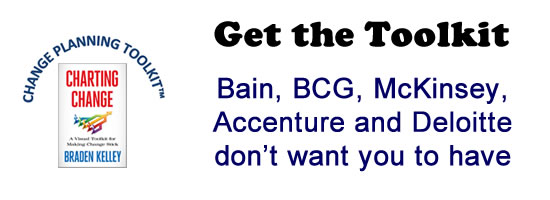Silicon Valley’s Next Target: Disrupt the Construction and Real Estate Industries

‘Construction Tech’ and ‘Real Estate Tech’ are the next greenfield market spaces.
Every industry, every company, and every leader must recognize one simple fact:Â every product, service, process, and business model will be disrupted–it’s just a matter of time. Companies that think they’re immune to the trends and technologies upending every industry on the planet risk the same thing: obsolescence.
There’s no hiding from disruption. That’s why I’ve created a series called “Everything Transformed” as part of my Inc.com Innovate column. Industries as varied as management consulting, product packaging, health care, manufacturing, and travel and hospitality are all transforming before our eyes.
When I see certain industries lagging to respond to the dramatic change surrounding us, it’s a clear sign that disruption of the entire industry–usually imposed from outside of it–isn’t far away.
The construction industry builds houses, strip malls and office complexes. New construction is financed and then led by real estate developers, and then agents help sell or lease houses and buildings which are sometimes managed by property management companies. It’s an ecosystem that’s been around for a long, long time, doing things the same old, old way.
Until now.
The real estate and construction industries might be considered stodgy by many standards. On average, companies in these industries re-invest less than 1 percent of revenue into research and development. Other industries invest between 3Â percent to 8Â percent in building new, technology-driven products, services, and business models focused on creating the future.
But that’s changing. By necessity.
Two of the top 10 highest funded startups in 2018 were in construction and real estate tech. Katerra received $865 million and OpenDoor obtained $725 million from investors. According to Crunchbase, VC investment in construction tech was $1.27 billion for the first three quarters of 2018, 124 percent higher than the same period in 2017.
As part of my series on Everything Transformed, I’m tapping into my network at Plug and Play, one of Silicon Valley’s largest innovation accelerators. The 180,000-square-foot facility houses a network of startups and large corporations looking to create and invest in the next big thing.
According to MJ Cootsona, corporate partnerships manager for Plug and Play’s Real Estate and Construction program, “This past year, the biggest companies in the industry have turned towards innovation as a focus. It’s now clear that if they don’t disrupt the space from within, they’ll miss opportunities and run the risk of being disrupted from new players, just like Airbnb transformed the hospitality space.” Six trends will transform the construction and real estate industries:
Offsite Construction
Offsite construction is meant to streamline the construction process from start to finish, starting with manufacturing a majority of each building in factories or offsite locations. This process increases efficiency and reduces the cost of each construction project.
Construction Site Robotics
Augmenting construction site tasks with robotics, like moving or managing materials, helps to combat the workforce shortage and optimize overall efficiency.
Real Time, A.I.-Driven BIM (Building Information Modeling)
Computer vision and artificial intelligence help ensure that any structure as it’s being built matches the original design early in the construction process, so action can be taken if discrepancies exist. It’s much more cost effective to find and fix issues early in the process, and A.I. provides solutions for both simple and complex construction projects.
Smart Sensors for Smart Buildings
These systems are put in place to understand how space is utilized in order to operate building systems (HVAC, lighting, etc.) more efficiently, and construct new buildings that are spatially aware.
Actionable Insights Through Data Analytics
Data analytics in the real estate and construction industries is about providing “actionable insights.” While collecting data about buildings, space utilization, construction sites, etc., will remain important, advanced analytics are now being used to determine the most effective use of that data.
Space as a Service (SPaaS)
The under-utilization of space has raced to the forefront of the building world’s mind as companies realize the untapped potential of vacancy. Startups are starting to tackle this problem by finding creative ways to fill space during off-hours and in unconventional spaces.
The big players don’t want to be left behind. Adam Stanley, CIO and chief digital officer at Cushman & Wakefield, describes why his firm joined Plug and Play’s corporate partner program: “By placing bets with early-stage tech companies and making later-stage investments, Cushman & Wakefield is well-positioned to capitalize on industry shifts and anticipate trends as they start.”
That’s also why market leading companies like Fannie Mae, ProLogis, Takenaka, Shimizu, and Kajima are also Plug and Play corporate partners. “Construction companies, developers, and real estate firms are bolstering their operations by partnering with, investing in, and acquiring startups that have unique solutions based on sensors, robotics, artificial intelligence, blockchain, and other disruptive technology,” says Kia Nejatian, who oversees Plug and Play’s real estate and construction investment portfolio.
Some of Plug and Play’s most innovative portfolio companies include:
- Concrete Sensors:Â Embedded sensors analyze data from concrete as it is curing to report the strength of the concrete in real time.
- Locate.ai:Â A data analytics platform that predicts revenue potential for commercial real estate by aggregating 130,000 data points per square block and pairs that with a company’s internal data to generate revenue predictions of future retail stores.
- Zesty.ai:Â A property analytics platform that uses the latest advancements in computer vision, deep learning, and digital imaging to understand buildings and their occupants to optimize inspections and insurance.
- AskPorter:Â An A.I. driven Property Management platform with “Porter,” an A.I. Digital Assistant that eliminates mundane tasks and delivers instant, efficient customer service.
- Sapient Industries:Â A “hardware-as-a-service” company focused on smart electrical outlets, providing insights into energy consumption throughout a building to manage and reduce energy costs.
The construction industry coined the term “greenfield” to describe undeveloped land that represented a new investment and building opportunity. The term is more relevant today than ever, but now describes an even bigger undeveloped opportunity–to disrupt business as usual and transform just about everything the construction and real estate industries do.
Image credit: Pixabay
Wait! Before you go…
Choose how you want the latest innovation content delivered to you:
- Daily — RSS Feed — Email — Twitter — Facebook — Linkedin Today
- Weekly — Email Newsletter — Free Magazine — Linkedin Group
 Soren Kaplan is the bestselling and award-winning author of Leapfrogging and The Invisible Advantage, an affiliated professor at USC’s Center for Effective Organizations, a former corporate executive, and a co-founder of UpBOARD. He has been recognized by the Thinkers50 as one of the world’s top keynote speakers and thought leaders in business strategy and innovation.
Soren Kaplan is the bestselling and award-winning author of Leapfrogging and The Invisible Advantage, an affiliated professor at USC’s Center for Effective Organizations, a former corporate executive, and a co-founder of UpBOARD. He has been recognized by the Thinkers50 as one of the world’s top keynote speakers and thought leaders in business strategy and innovation.
NEVER MISS ANOTHER NEWSLETTER!
LATEST BLOGS
How Brexit Has Affected UK E-commerce Businesses
Photo by Zyro on Unsplash The popularity of online shopping was already growing at an impressive rate – and…
Read MoreOvercoming range anxiety: three tips for EV owners
Photo by Jenny Ueberberg on Unsplash In the last few years, electric vehicles (EVs) have become more and more…
Read More


